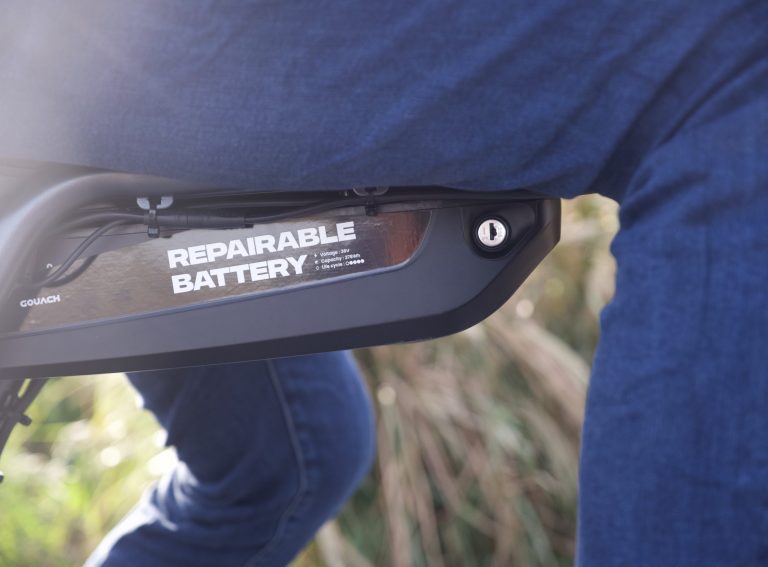“London suffers from some of the worst congestion and air pollution in Europe,” observes Patrick Studener, head of the EMEA region at Bird. “With the average car trip in the city being one person travelling less than 4 miles, it’s no wonder the city has ground to a halt.”
Today, TfL took the covers off its plan for a city-wide trial of shared electric scooters. It’s an ambitious plan that involves tying together as many boroughs as possible to allow borderless travel on the little electric two-wheelers. But what does it mean for the capital?
“E-scooters look like being a good solution for getting Londoners around safely and efficiently, and could help discourage people from using cars, reducing congestion and emissions,” comments Rob Whitehead, director of strategic projects at thinktank Centre for London. “Other cities have moved faster on trials, so this announcement a welcome sign that London is getting its act together. More boroughs joining in would have been even better news though.”
TfL said that around a third of boroughs have signed up to the initial trial but the door remains open for as many as possible to participate.
“Today is an historic day for London, once again leading the way in technology and innovation as it embarks on a new journey to revolutionize transportation,” says Felix Eggert, policy lead at Wind, the company with bright-yellow scooters in operation in Nottingham. “We commend and congratulate the Mayor of London for his ambition and boldness.”
“It’s fantastic that TfL has today recognised electric scooters can play a key role in helping London move again, decreasing congestion and improving air quality for millions – and we applaud that,” Studener continues. Bird is seen as the founding father of this industry but has won just two trials in the UK – Redditch and Canterbury. Now, the giant firm is setting its sights on London. “Bird is no stranger to London, having operated in the Queen Elizabeth Olympic Park for the last two years, so we’re very much looking forward to being able to spread our wings further.
From its giant operation in Paris, Dott is watching eagerly, too. The company is one of just three operators with permits to operate in the French capital; Dott alone has a fleet of 5,000 scooters at work in Paris.
“We welcome the news that TfL is progressing with a trial of e-scooters across London,” says Dott’s UK general manager, Duncan Robertson. “We’re also very supportive of the high bar for safety and scooter quality set by TfL today. Data from several European cities where e-scooters are part of the mobility infrastructure clearly demonstrate how vital they can be in cutting the number of car journeys and contributing to improved air quality. This trial will hopefully be the first step toward a green revolution for urban mobility in the capital. We’re confident that Londoners will not only embrace the flexibility that e-scooters bring, but will also back calls for greater availability and access across the city.”
“In the wake of the pandemic, London has made huge strides to help residents get around safely and sustainably,” comments Florence Milner, general manager for UK and Ireland at Lime. Alongside bike-share in the capital and Milton Keynes, Lime is also supplying e-scooters for hire in Salford and Milton Keynes. “New cycle lanes have opened up streets to more people on two wheels, while low-traffic neighbourhoods have breathed new life into residential streets, helping improve air quality in densely populated areas. We’re delighted that the mayor, TfL and the London boroughs are taking the next step in ensuring that we avoid a car-based recovery, by committing to a widespread e-scooter trial.”
There remains, however, an elephant in the room. While the tireless work of TfL is to be commended in getting an e-scooter trial to the table, and while DfT deserves equal praise for opening up the country to trials, the thorny issue of private e-scooter use looms even larger. It remains illegal to ride privately-owned electric scooters, with several recent headline-grabbing news reports of scooters being seized and riders heavily fined underlining the disparity. This is despite a recent Parliamentary report recommending their swift legalisation.
“It’s great that TfL has pulled together the momentum to get the trial up and running; we know it has been hard work,” says Tom McPhail, director of public affairs at retailer Pure Electric, which sells e-bikes and e-scooters. “The trial is proposed to last for 12 months from the Spring of 2021. The government needs to address a modification to the law more quickly. It could easily be another two or three years before they change the law and that is too long. Hundreds of thousands of people are using privately-owned scooters safely and responsibly on a daily basis, yet they could fall foul of the law. The police have better things to do with their time than stop and fine people who are often behaving in exactly the same way as cyclists.”
Private scooter use remains a topic for another day: today belongs to TfL and its shared e-scooter pilot programme.





